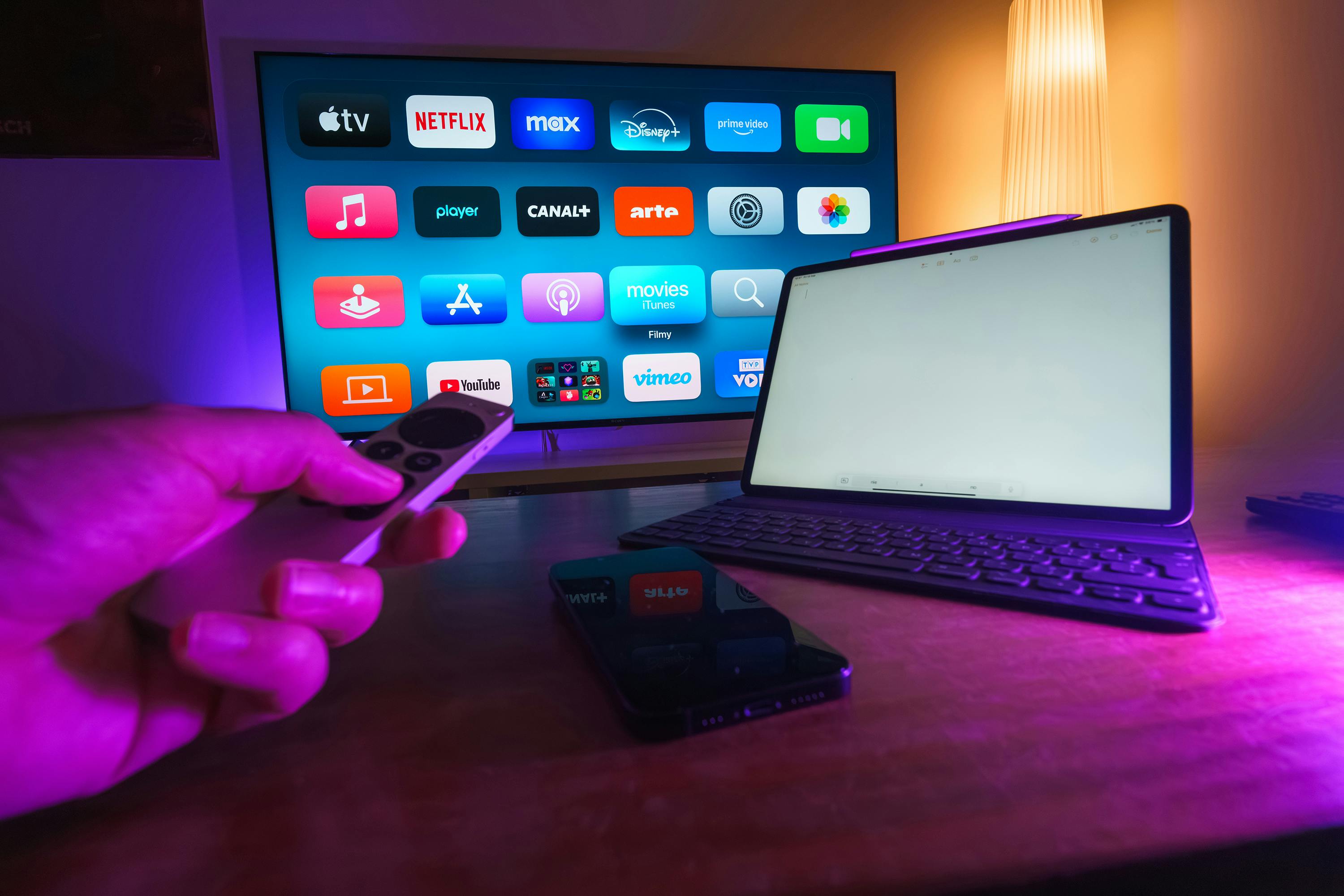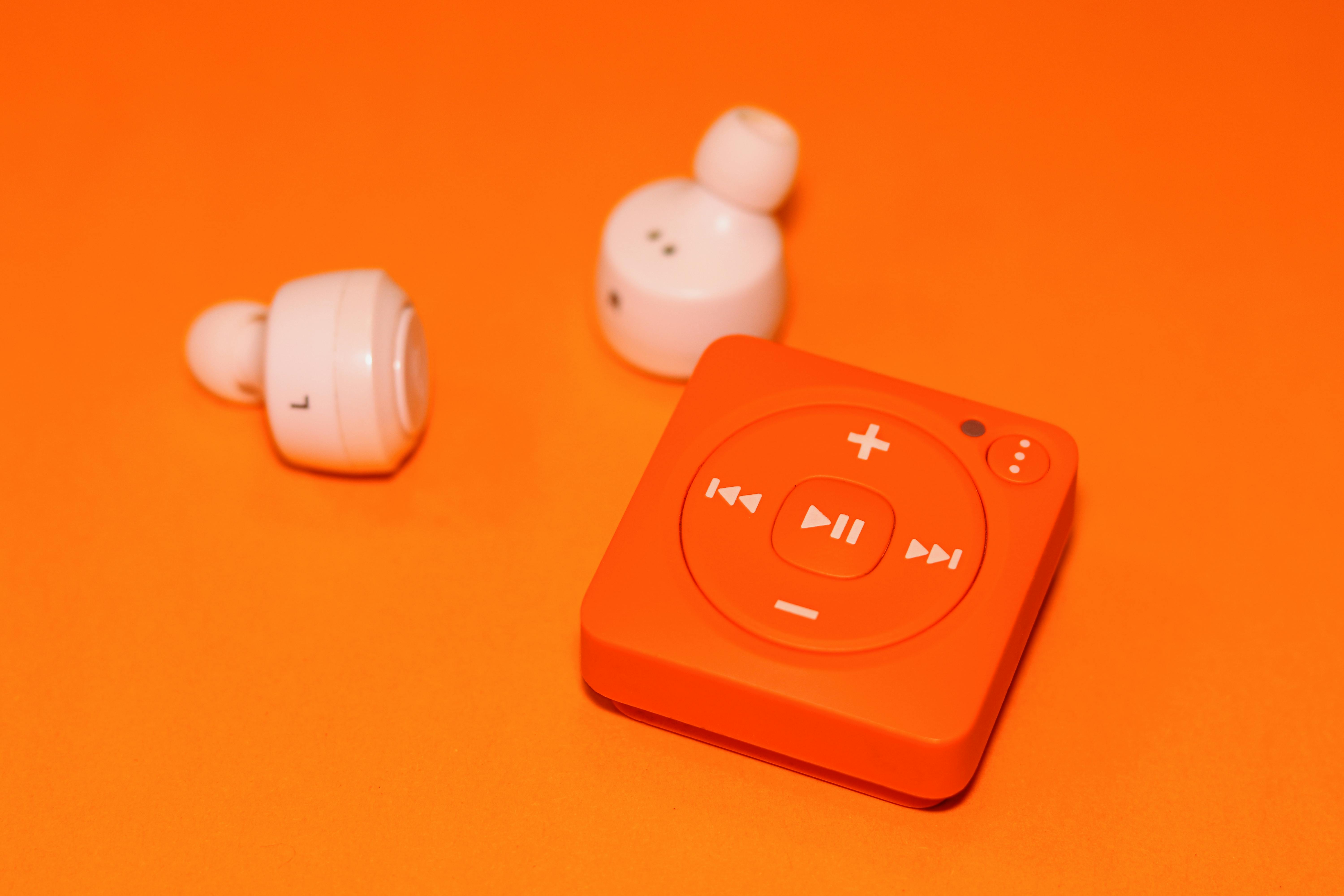So, you’ve probably stumbled upon the phrase Youtube Converter M4A somewhere online and thought, “What on earth is that all about?” Well, buckle up, because we’re diving headfirst into the slightly chaotic world of converting videos to audio—fast, easy, and without losing your mind. Why is no one talking about how simple it actually is to grab that perfect M4A file from your favourite YouTube clips? Honestly, it’s like the best-kept secret for anyone who loves their tunes on the go or needs crisp audio for projects.
Now, maybe it’s just me, but the whole idea of a youtube converter m4a tool sounds a bit techy and complicated at first glance. But here’s the kicker: it’s not. Not gonna lie, this surprised me too when I first tried it. With the right converter, you can effortlessly convert videos fast without waiting forever or dealing with clunky software that crashes every five minutes. You’d think this would be obvious, right? Yet so many folks still struggle with low-quality audio or formats that don’t play on their devices. So, if you’ve ever wondered how to turn that viral video or lecture into a neat little M4A file, stick around—because this is where things get interesting.
What Is a YouTube Converter M4A and Why Use It for Audio Extraction?
So, you’re here wondering, “What is a YouTube Converter M4A and why on earth would I even need it for audio extraction?” Honestly, same. I mean, we all know YouTube’s this endless pit of videos, music, lectures, cat fails — but sometimes, you just want the audio bit. Yeah, just the sound, not the whole flashy video. And that’s where this mysterious YouTube Converter M4A thingy comes in. But what is it exactly? Why bother? And how do you actually use it without losing your mind? Let’s dive in, or at least try to.
What Is a YouTube Converter M4A, Anyway?
Right, first things first, M4A stands for MPEG-4 Audio. It’s basically an audio file format, kinda like MP3 but supposedly better in some ways — better sound quality at the same file size, or smaller files for the same quality. Or so the geeks say. Honestly, it sounds like marketing lingo half the time. Anyway, a YouTube Converter M4A is just one of those online tools or software that lets you take the audio from a YouTube video and save it as an M4A file. Simple, right? Except it’s never that simple because YouTube doesn’t exactly hand out audio files on a silver platter.
So, instead of downloading the entire video (which can be massive and annoying, especially if you only want a podcast episode or a song), you use these converters to “extract” the sound. You stick the video URL into the converter, hit the button, wait for what feels like forever, and then boom — you get an M4A file. Or sometimes, you get an error message, because technology loves to mess with you.
Why Use M4A for Audio Extraction from YouTube?
Okay, why not MP3? That’s the default, right? Well, M4A has a few advantages that make it worth considering:
- Better sound quality at similar bit rates. So, you get clearer audio without massive file sizes.
- Smaller files compared to MP3s, which is handy if you’re low on phone storage or data.
- Compatibility with Apple devices — iPhones, iPads, Macs — kinda the default format there.
- Less compression artefacts, meaning it doesn’t sound like you’re listening through a tin can.
But then again, not every device or software loves M4A files, so it’s a bit of a gamble if you’re going to share it widely. Maybe it’s just me, but sometimes I feel like MP3 is just easier because, well, everyone knows it.
Youtube Converter M4A: How To Effortlessly Convert Videos Fast
Alright, this is where most people trip up. You want to convert a video to M4A quickly without signing up for five accounts, installing sketchy software, or waiting hours for it to process.
Here’s a quick-and-dirty step-by-step (because who reads manuals anyway?):
- Find your YouTube video — copy the URL from the browser.
- Pick a reliable YouTube Converter M4A — there’s tons online, but some are dodgy or full of ads. A quick Google search for “youtube converter m4a” will throw up options like YTMP3, 320Ytmp3, or other random-sounding sites.
- Paste the link into the converter’s box — usually, the homepage has a big input field that screams “Paste your link here.”
- Choose M4A as the output format — some defaults to MP3, so don’t miss this step.
- Hit convert and wait — this can take from a few seconds to a couple of minutes, depending on the file size and your internet speed.
- Download the file — make sure you save it somewhere easy to find, unlike me who loses downloads every other day.
Honestly, sometimes the site will shove a bunch of pop-ups or try to trick you into downloading spyware. Seriously, who even came up with this? Just want my audio, not a virus.
Sorry, had to grab a coffee — anyway…
A Quick Table: M4A vs MP3 for YouTube Audio Extraction
| Feature | M4A | MP3 |
|---|---|---|
| File Size | Smaller for same quality | Usually larger |
| Sound Quality | Better at same bitrate | Good, but slightly compressed |
| Compatibility | Great with Apple devices, limited elsewhere | Universally supported |
| Compression Artifacts | Fewer, cleaner audio | More noticeable in low bitrates |
| Use Case | Audiophiles, Apple users, podcasts | General use, wide sharing |
Top 7 Fastest YouTube Converter M4A Tools in 2024: A Comprehensive Review
Alright, so you’re here because you want to convert YouTube videos to M4A format, and fast. Like, really fast. And honestly, who isn’t? With all the noise about streaming and downloads, sometimes you just want that sweet audio file without faffing about. But, before you roll your eyes and think, “Yeah yeah, another boring tech article,” stick with me. I’ll try not to bore you too much, and maybe even help you avoid some rookie mistakes. Or not. Whatever.
Why the Fuss About YouTube Converter M4A Anyway?
So, M4A – it’s one of those audio formats that’s kinda like MP3’s cooler, younger sibling. Smaller file sizes, decent quality, and plays nicely on most devices. YouTube itself doesn’t let you just grab audio files, obviously (because, copyright stuff and all that jazz). That’s where these YouTube converter M4A tools come in. They snatch the audio track from a video and package it all nice and neat for you.
Not really sure why this matters, but apparently, people prefer M4A over MP3 because of better compression and sound, or something. Maybe it’s just me, but sometimes I wonder if it’s all just a fancy marketing ploy. Anyway, what was I saying again? Oh yeah – fastest converters. Because who’s got time to wait, right? Especially when you’re juggling ten tabs and half a dozen snacks.
Top 7 Fastest YouTube Converter M4A Tools in 2024: A Comprehensive Review
Alright, I’ve sifted through a bunch of options. Some were painfully slow, others tried to install sketchy toolbars (no thanks), and a few actually did what they promised. Here’s the lowdown on the speediest and most reliable ones as of 2024.
| Rank | Tool Name | Average Conversion Speed | Key Features | Free or Paid? |
|---|---|---|---|---|
| 1 | YTMP3.cc | ~15 seconds | Simple UI, no registration, batch convert | Free |
| 2 | 4K YouTube to MP3 | ~20 seconds | High-quality M4A output, offline mode | Freemium |
| 3 | OnlineVideoConverter | ~25 seconds | Supports multiple formats, subtitle extraction | Free |
| 4 | Any Video Converter | ~30 seconds | Desktop app, editing tools included | Paid (trial available) |
| 5 | FLVTO | ~35 seconds | Fast server, browser extension support | Free with ads |
| 6 | ClipGrab | ~40 seconds | Open-source, privacy-focused | Free |
| 7 | MediaHuman YouTube to MP3 | ~45 seconds | Batch processing, decent speed | Freemium |
Not perfect, but decent enough. Honestly, I expected them all to be snappier, but internet speeds and server loads do mess things up sometimes. And yes, I know, some of these tools sound like dodgy 90s software, but they’re surprisingly legit.
Youtube Converter M4A: How To Effortlessly Convert Videos Fast
Okay, here’s a quick, no-nonsense guide for you, because who reads manuals anymore?
- Find your YouTube video URL. Copy it.
- Head over to your favourite converter (from the list above).
- Paste the link into the converter’s input box.
- Select M4A as your output format. (Some tools default to MP3, so watch out!)
- Hit ‘Convert’ and wait… but not too long, please.
- Download your shiny new M4A file.
- Play it on your phone, laptop, or whatever else you’ve got.
Seriously, couldn’t be easier. But oh, watch out for those annoying pop-ups and shady ads. They’re everywhere, like weeds in a neglected garden.
Quick Tips to Speed Up Your Conversion Experience
- Use desktop apps if you’re converting loads of files at once. Browsers can be sluggish or crash.
- Avoid converters that force you to install junk software. You don’t need another toolbar.
- Double-check the output quality settings. Sometimes they default to low bitrate, which sounds like a robot singing.
- Clear your browser cache if it’s acting slow—sometimes that weirdly helps.
- If you’re on mobile, pick converters optimised for phones. Otherwise, it’s a nightmare.
Wait, Sorry, Had to Grab a Coffee — Anyway…
Back now. So, if you’re wondering why bother with M4A when MP3 is everywhere, here’s a quick history lesson: M4A came along
Step-by-Step Guide: How to Effortlessly Convert YouTube Videos to M4A Format
Alright, so you’ve been there, right? Watching some YouTube video—maybe it’s a killer podcast, or that one song you can’t get out of your head—and you think, “I wish I could just grab the audio, like, instantly.” Well, welcome to the weird world of converting YouTube videos to M4A format. Sounds fancy, but honestly, it’s just a way to get the audio without all the video nonsense. And yeah, there’s heaps of ways to do it, but let me try and walk you through a step-by-step guide on how to do it effortlessly. Because who’s got time for complicated tech stuff at 2am, right?
Why Bother with M4A Anyway?
Not really sure why this matters, but M4A is basically an audio format, kinda like MP3 but supposedly better in quality and smaller file size. It’s used a lot on Apple devices (because of course it is), and it supports things like album art and metadata better than your average MP3. So if you’re into keeping your music library neat or wanna listen on your iPhone without converting later, M4A is your friend.
Also, compared to MP3, M4A can give you better sound quality at the same bitrate. Fancy stuff. But if you’re just listening on some rickety old phone, maybe it doesn’t make much difference. Anyway, what was I saying again? Oh right, converting YouTube vids to M4A.
What’s the Deal with YouTube Converter M4A Tools?
There are a gazillion YouTube converters out there—some free, some paid, some sketchy. And if you’re anything like me, you’ve probably tried a few and ended up with dodgy downloads or ads popping up like it’s 1999. Seriously, who even came up with this whole “free converter” nonsense? But, if you pick the right tool, you can get your audio files quick and hassle-free.
Usually, these sites or apps just need the YouTube video URL, and then they do their magic. They rip the audio track and spit it out as an M4A file. Simple, right? Well, kinda. Some sites have limits on file size, or the quality options aren’t great, or they shove ads in your face. Typical.
Step-by-Step Guide: How to Effortlessly Convert YouTube Videos to M4A Format
Alright, here’s the no-nonsense method to get your files without losing your mind:
- Find the YouTube video you want to convert. Copy the URL from the address bar. Easy.
- Head over to a trusted YouTube converter that supports M4A. (Examples below, because yeah, you’ll want options.)
- Paste the URL into the converter’s input box.
- Select M4A as the output format. Sometimes they default to MP3, but always look for that M4A option if you want it.
- Choose your audio quality. Most converters let you pick between 128kbps, 192kbps, 320kbps, etc. Higher bitrate usually means better sound, but bigger file.
- Hit ‘Convert’ and wait a few seconds. Usually, it won’t take long unless the video is massive.
- Download your M4A file and save it somewhere safe on your device.
Boom, done. Now you got your audio, no video baggage.
Some Popular YouTube Converter M4A Sites (Not Sponsored, Just FYI)
| Website | Pros | Cons |
|---|---|---|
| YTMP3.cc | Simple, fast, no frills | Ads can be annoying |
| 4KDownload | High quality, multi-format | Requires software install |
| OnlineVideoConverter | Supports many formats | Sometimes slow, popup ads |
| FLVTO.biz | Easy interface, quick | Quality varies, some sketchy ads |
Just a heads up, these sites sometimes get blocked or change their names, so if one doesn’t work, try another. And please, be cautious about malware or shady downloads. Always have antivirus, because I’m not babysitting your computer.
Quick Comparison: M4A vs MP3 vs WAV (Because Why Not?)
| Format | Quality | File Size | Compatibility | Use Case |
|---|---|---|---|---|
| M4A | Better than MP3 at same bitrate | Smaller than WAV, similar to MP3 | Great on Apple devices, most modern players | Music libraries, podcasts, iPhones |
| MP3 | Good, lossy | Small | Universal compatibility | General use, older devices |
| WAV |
Benefits of Using a YouTube to M4A Converter for High-Quality Audio Downloads
So, you’re here because you’ve heard about this whole YouTube to M4A converter thing, right? Maybe you want to snag some audio from a video—like a podcast, a song, or that weird sound effect you can’t get out of your head—and you want it to be high quality. Honestly, I get it. YouTube’s great and all, but sometimes you just want the audio without all the video fluff. Enter the mysterious world of youtube converter M4A. Sounds fancy, but it’s mostly just tech-speak for turning videos into audio files that won’t make you cringe when you listen later.
Why Bother With M4A Anyway?
Okay, first off: what is M4A? It stands for MPEG-4 Audio, which is basically a file format used for storing audio. Unlike MP3s, which have been around forever and a day and kind of lost their charm (and quality), M4A is more modern and can hold better sound with smaller file sizes. Not really sure why this matters, but if you’re the type who notices the difference between “meh” and “wow” in your music, M4A is a nicer way to go.
Here’s a quick rundown of why M4A could be your new best mate:
- Better Sound Quality: M4A generally compresses audio without losing as much quality compared to MP3s.
- Smaller File Size: You get good sound without hogging all your storage. Handy if you’re on a laptop with limited space.
- Compatibility: Most modern devices and apps can play M4A files, so you’re not stuck hunting for special software.
- ID3 Tags Support: Like MP3s, you can add song info (artist, album, etc.), which is super useful for organising music libraries.
Seriously, who even came up with this? It’s like, “Let’s make audio files better but keep them tiny,” and somehow it worked.
Youtube Converter M4A: How To Effortlessly Convert Videos Fast
Now, converting YouTube videos to M4A might sound like some dark art, but it’s actually quite straightforward. There are loads of online tools and software that promise to do it fast. Some work better than others, and some are just scams waiting to happen—so watch your back.
Here’s a basic step-by-step on how you’d typically convert a YouTube video to M4A:
- Find the YouTube video you want to convert. Obviously.
- Copy the video URL from your browser’s address bar.
- Go to a youtube converter M4A website or app. There are tons out there, some free, some paid.
- Paste the URL into the converter’s input box.
- Select M4A as the output format. Some tools might offer different quality options, pick the highest if you want better sound.
- Hit the convert button and wait. Depending on the file size and your internet speed, this could be a few seconds or a few minutes.
- Download the M4A file once it’s ready.
Easy, right? Well, in theory. Sometimes these sites are jam-packed with ads or pop-ups, which is super annoying. Maybe it’s just me, but I always feel like I’m one click away from some malware. So, yeah, be careful.
Benefits of Using a YouTube to M4A Converter for High-Quality Audio Downloads
Alright, let’s get into why anyone would bother with this whole rigmarole instead of just streaming on YouTube or using Spotify or whatever. Here’s the thing: sometimes you want offline access, and sometimes streaming just doesn’t cut it—especially if your Wi-Fi is flaky (looking at you, London Tube rides).
Main perks of downloading audio using a YouTube to M4A converter:
- Offline Listening: Perfect for planes, trains, or when your phone stubbornly refuses to connect to wifi.
- No Ads: YouTube’s ad breaks are like nails down a chalkboard. With M4A files, you skip all that nonsense.
- Custom Playlists: You can organise your audio files any way you want without relying on YouTube’s algorithms or shuffle madness.
- Preserve Quality: If you pick the right converter and settings, you get audio that’s actually listenable, not some tinny mess.
- Use Anywhere: Play your files on pretty much any device, from phones to smart speakers, without needing YouTube.
Quick Comparison Table: YouTube Audio vs M4A Download
| Feature | Streaming on YouTube | Downloading M4A Audio |
|---|---|---|
| Requires Internet | Yes | No |
| Ad Interruptions | Yes |
How to Choose the Best YouTube Converter M4A for Your British Audience
Alright, so you’re probably here because you want to figure out how to convert YouTube videos to M4A files without losing your mind, right? Yeah, me too. Honestly, it’s one of those things that sounds simple but ends up being a whole saga. And for my British mates out there (and anyone else who just fancies a cuppa while sorting this stuff), I’m gonna try and make sense of the madness that is picking the best YouTube converter M4A. Spoiler alert: there’s no one-size-fits-all, and Google’s suggestions can be a bit dodgy sometimes, but let’s give it a go.
Why Does Anyone Even Need a YouTube Converter M4A?
First off, what on earth is M4A? It’s basically an audio file format, like MP3 but supposedly better in quality and smaller in size. Not really sure why it matters, but audiophiles swear by it. So if you’re after just the audio from a YouTube video—say, a podcast, a song, or some random lecture—you’d want to rip it out as M4A to save space and keep decent sound.
But here’s the kicker: YouTube won’t just hand you the audio files. You gotta convert them. Which is where YouTube converters come in, and if you’re thinking “why not MP3?”, well, fair. M4A is just a bit more modern and sometimes better, especially on Apple devices or if you want slightly higher fidelity.
How To Effortlessly Convert Videos Fast (Or At Least Try To)
Right, so you’ve got a video link, and you want to convert it to M4A without spending hours. There are loads of websites and apps claiming to be the “best” YouTube converter M4A, but honestly, most are either stuffed with ads or just slow as molasses on a cold day.
Here’s what you should really look out for:
- Speed: Nobody wants to wait 15 minutes for a 5-minute clip.
- Quality: Some converters butcher the audio, making it sound like you’re underwater.
- Safety: Avoid shady sites that might throw malware at you.
- No annoying watermarks or forced installs: Seriously, who even came up with this?
- Ease of use: If it looks like it was designed by a five-year-old, just pass.
Quick Comparison Table: Popular YouTube Converter M4A Tools
| Converter Name | Speed | Quality | Ads | Platform Support | Notes |
|---|---|---|---|---|---|
| YTMP3.cc | Fast | Decent | Yes | Web-based | Annoying pop-ups |
| 4K Video Downloader | Medium | High | No | Windows/Mac/Linux | Paid version better |
| Any Video Converter | Slow | Good | No | Windows/Mac | Bulk conversions possible |
| OnlineVideoConverter | Fast | Variable | Yes | Web-based | Sometimes blocked in UK |
| ClipGrab | Medium | Good | No | Windows/Mac/Linux | Open source, reliable |
So yeah, it’s a mixed bag. Some are quick but sketchy, others are safe but slow as hell.
Step-by-Step: How To Use a YouTube Converter M4A (The Basic Idea)
- Find the YouTube video you want to convert.
- Copy the URL from the address bar.
- Visit your chosen YouTube converter M4A website or open the app.
- Paste the URL into the converter’s box.
- Select M4A as the output format (if it’s not default).
- Hit “Convert” and wait. (Try not to lose your patience here.)
- Download the converted file once it’s done.
- Check the audio quality before deleting the original video (if you had it).
Easy, right? Not really, but it’s the general gist.
Okay, Sorry, Had to Grab a Coffee — Anyway…
One thing that really annoys me is how some converters just don’t work properly in the UK because of region restrictions or silly copyright laws. Like, you’re just trying to save a bit of audio for your morning jog playlist and suddenly you’re in a legal labyrinth. Not saying you should break the law or anything (don’t @ me), but it’s a pain.
Also, watch out for converters that demand you install “helper” software. That’s often a red flag, unless you’re into downloading malware as a hobby. If you want something reliable, open-source stuff like ClipGrab or a paid app like 4K Video Downloader seems to be less hassle.
Why You Probably Shouldn’t Overthink It (But You Will Anyway)
Troubleshooting Common Issues When Converting YouTube Videos to M4A
You ever tried converting a YouTube video to M4A and just… failed miserably? Yeah, me too. It’s like, one minute you’re all hyped about having your fav podcast or that weird indie track offline, and the next, your converter spits out some garbage file that won’t even open. Honestly, why is this such a pain in the neck? Anyway, I’m gonna try and walk you through the whole mess that is troubleshooting common issues when converting YouTube videos to M4A. Spoiler: it ain’t always straightforward. But hey, buckle up, maybe you’ll learn something—or at least commiserate with me.
Youtube Converter M4A: What’s the Big Deal?
First off, for those not in the know, M4A is basically an audio-only file format, kinda like MP3 but supposedly better quality and smaller size. It’s widely supported on Apple devices and most modern players, which is why people want to rip YouTube videos (which are mostly .mp4 or .webm) into M4A. Makes sense, right? Just audio, no video baggage.
But here’s the kicker: YouTube itself doesn’t exactly make it easy to just “download” stuff. So we rely on all these third-party converters. And, oh boy, not all of them are created equal. Some are sketchy, some are slow, and some just love to crash when you least expect it. Honestly, I don’t get why it’s so complicated to convert a video to a simple audio file without it turning into a digital disaster.
Common Problems When Using Youtube Converter M4A
Right, let’s break down the usual suspects. These are the headaches you might face:
- Conversion speed is painfully slow — Sometimes the converter just drags, like a snail on a hot day. Could be your internet, could be the tool itself choking on the file.
- Output file won’t play — You get a file, but your media player says “nah, mate, no can do.” This often means the file’s corrupted or the format isn’t really M4A despite the extension.
- Poor audio quality — You expect crisp sound, but instead, it’s all muffled or distorted. Possibly because the converter is using a low bitrate or the source video’s audio was dodgy.
- Converter website is full of ads and pop-ups — Honestly, who needs 10 pop-ups before you can even click “convert”?
- Conversion fails halfway through — It just stops, freezes, or crashes. Frustrating doesn’t even cover it.
- No option to select audio quality or format — You wanna tweak settings but nope, the converter’s as basic as a biscuit.
Honestly, if you’ve experienced at least one of these, welcome to the club. Maybe it’s just me, but it feels like these converters are playing a cruel joke sometimes.
How To Effortlessly Convert Videos Fast (Or Try To)
Okay, so now that I’ve moaned enough about the issues, let’s talk solutions. Here’s a quick and dirty guide to getting your YouTube video converted to M4A without losing your rag:
- Pick a reputable converter — Not all converters are dodgy. Some like 4K Video Downloader, YTMP3.cc, or OnlineVideoConverter.com actually work okayish.
- Check your internet connection — Sounds obvious, but a dodgy Wi-Fi could slow everything down or cause failures.
- Use desktop software if possible — Browser-based converters are convenient but often less stable than desktop apps.
- Adjust settings — If your converter lets you choose bitrate or sample rate, go for 128 kbps or higher for decent quality.
- Avoid batch converting huge playlists — One video at a time, mate. Otherwise, the process might choke.
- Keep your media player updated — Sometimes the issue is on the playback end, not the file.
- Clear cache and cookies frequently — Especially with browser tools, this can prevent weird errors.
And, yeah, I know you just want a magic button that does it all perfectly, but that’s not really how this world works.
Quick Table: Comparing Popular Youtube Converter M4A Tools
| Converter Tool | Speed | Ease of Use | Ads & Pop-ups | Audio Quality Options | Desktop App Available |
|---|---|---|---|---|---|
| 4K Video Downloader | Fast | Medium | None | Yes | Yes |
| YTMP3.cc | Medium | Easy | Lots | No | No |
| OnlineVideoConverter | Slow | Easy | Loads | Limited | No |
| ClipGrab | Medium |
Can You Convert YouTube Videos to M4A on Mobile? Top Apps Explained
Can You Convert YouTube Videos to M4A on Mobile? Top Apps Explained, Youtube Converter M4A: How To Effortlessly Convert Videos Fast, youtube converter m4a
Right, so here’s the deal. You’ve been scrolling through YouTube, found some banging video — maybe a live concert, a podcast, or just some random bloke ranting about life — and you suddenly think, “Hey, can I convert this to M4A on my phone? Like, just the audio, no video fluff.” I mean, seriously, who even came up with this? Why do we need M4A anyway? Isn’t MP3 enough? But nope, apparently, M4A is a thing, and people swear by it for better sound quality or smaller file sizes or whatever.
Anyway, if you’re scratching your head wondering “Can you convert YouTube videos to M4A on mobile?” — I’m here to tell you, yes, yes you can. And no, it’s not some dark art or wizardry. But also, it’s not always straightforward because mobile restrictions and whatnot. So buckle up, and let’s dive into the weird world of YouTube converter M4A apps.
Why This Still Matters (I Guess)
Before we get all technical, let’s pause and ask — why even bother converting YouTube videos to M4A on your mobile device? Good question. I mean, streaming is everywhere now, and most phones have Spotify or Apple Music. But sometimes, you want offline access without the hassle of video files. Audio files take less space, use less data, and you can chuck them on your playlist or car stereo without annoying distractions.
M4A is basically an audio-only file format that’s kinda like MP3’s posh cousin. It usually means better sound at the same file size, which is neat if you’re picky about audio quality. Not really sure why this matters to the average Joe, but audiophiles (yeah, those folks) will tell you it’s the way to go.
Top Apps for Converting YouTube Videos to M4A on Mobile
So, what apps actually do this without turning your phone into some sketchy spyware collector? Here’s a quick rundown of popular ones, with their pros and cons because yeah, nothing is perfect, sorry.
Documents by Readdle (iOS)
- Pros: Free, includes a built-in browser to access online converters.
- Cons: Requires some manual steps; not a direct converter app.
- Notes: You gotta open a web-based converter inside the app, paste the YouTube URL, pick M4A, and download. Bit clunky but works.
YTMP3 – YouTube to MP3/M4A converter (Android & iOS via browser)
- Pros: Super simple, no installation needed.
- Cons: Ads everywhere, occasional downtime.
- Notes: Just paste the link, select M4A, and boom – file saved. But beware of sketchy ads and popups.
4K Video Downloader (Mobile version exists unofficially)
- Pros: High quality, supports multiple formats.
- Cons: The official app is desktop-only; mobile versions are hits and misses.
- Notes: If you’re really keen, you might have to fiddle with unofficial apps or use their desktop version.
VidMate (Android)
- Pros: Supports video and audio downloads, various formats.
- Cons: Not available on Google Play (dodgy installs).
- Notes: If you trust the source, it works quite well.
Honestly, the best way is probably using a web converter inside a browser or apps like Documents by Readdle on iPhone. Android users have more options but also more risk of dodgy software.
How To Effortlessly Convert Videos Fast (Well, Fastish)
If you wanna do this without losing your mind, here’s a rough step-by-step for using an online converter on mobile:
- Open your preferred converter website (YTMP3, Online Video Converter, etc).
- Copy the YouTube video URL (just tap Share > Copy Link).
- Paste the URL into the converter’s input box.
- Select M4A as your output format.
- Hit convert and wait a few seconds (depends on video length).
- Download the M4A file once ready.
- Find it in your downloads folder or media library.
Simple, right? Except sometimes the app/browser crashes, or the site is blocked in your region, or your phone storage is full. Classic.
Quick Comparison Table of YouTube Converter M4A Options
| App/Method | Ease of Use | Speed | Safety | Quality | Availability |
|---|
The Ultimate Comparison: Free vs Paid YouTube Converter M4A Software in the UK
You ever tried to convert a YouTube video to M4A and ended up way more confused than when you started? Yeah, me too. Honestly, the whole “Youtube Converter M4A” thing feels like a rabbit hole that never ends. Why do I even care about M4A? Well, apparently it’s a better audio format than MP3 or whatever, but don’t quote me on that. Anyway, since I’m stuck in the UK and trying to figure out if I should go free or paid with these converters, I thought I’d throw down some thoughts. Because, seriously, who even came up with this?
Why This Still Matters (Sort of)
People in the UK (and everywhere else probably) want their YouTube videos in audio form without the hassle of watching the whole thing. Whether it’s for podcasts, lectures, or just some weird obsession with collecting soundtracks, converting YouTube to M4A is the go-to. M4A files are supposedly smaller and better quality than MP3s, so that’s a win, right? Maybe it’s just me, but I don’t actually know why anyone cares about the format beyond “it sounds nicer.” But whatever.
Here’s the kicker: free converters often come with annoying ads, slow download speeds, and sketchy software you wouldn’t want near your laptop. Paid converters usually promise faster, better, and safer service—yet you gotta cough up the cash. So, what’s worth it? Let’s find out.
Free vs Paid YouTube Converter M4A Software in the UK: The Ultimate Comparison
| Feature | Free YouTube Converter M4A | Paid YouTube Converter M4A |
|---|---|---|
| Cost | £0 (obvs) | £10 – £50 yearly/subscription |
| Download speed | Slow, sometimes painfully slow | Generally fast and reliable |
| Ads and pop-ups | Loads of them, sometimes sketchy | Usually ad-free |
| File quality | Decent but can be inconsistent | High quality, consistent |
| Safety | Risk of malware or shady add-ons | Usually safe, with support |
| Extra features | Basic conversion only | Batch conversion, editing, format options |
| Ease of use | Can be clunky or confusing | User-friendly, polished interface |
Honestly, if you’re just converting one or two files, free might be alright. But if you’re like me — always converting random stuff at 2am — paid software is less of a headache. Not that I’m saying you should pay, just… you know, maybe consider it.
Youtube Converter M4A: How To Effortlessly Convert Videos Fast (Supposedly)
Okay, so here’s a quick-and-dirty guide to converting YouTube videos to M4A without losing your mind:
- Find a converter — free or paid, your call.
- Copy the YouTube URL (don’t forget this step, or you’re just wasting time).
- Paste it into the converter’s input box.
- Choose M4A as the output format (duh).
- Hit convert and wait. (And wait. And wait some more if it’s free.)
- Download your file. Pray it works.
If you’re using paid software, sometimes there’s an option for batch converting, which means you can throw in like 10 videos and let it run. For free converters, you’re usually stuck doing it one by one unless you want to pull your hair out.
Wait, Sorry, Had To Grab A Coffee — Anyway…
Back now. So, the UK’s internet speeds aren’t too shabby, but those free converters still feel like they’re operating on dial-up. Like, why does it take so long to convert a few seconds of audio? No one’s got time for that. And some free sites want you to install random plugins or “updates” that look fishier than a market in East London. Seriously, be careful.
Paid options like 4K Video Downloader or YTD Video Downloader (yeah, I know, sounds dodgy) tend to be more reliable. They usually come with customer support, which is a godsend when you accidentally download a file that’s just silence. Also, some paid converters allow you to extract audio directly in high quality, so you’re not stuck with crappy sound.
But What About Mobile, Eh?
You might be thinking — “Mate, I just want to do this on my phone.” Fair point. Free apps on iOS and Android for YouTube to M4A conversion are either limited or full of ads. Paid apps usually have a better user experience but, again, you gotta pay.
If you’re in the UK and on the go, sometimes it’s easier just to use
How to Legally Download and Convert YouTube Videos to M4A Without Copyright Issues
Alright, so you wanna know how to legally download and convert YouTube videos to M4A without copyright issues? Well, buckle up, because it’s not as straightforward as clicking a button and boom, done. Seriously, who even came up with this whole “YouTube downloading is a minefield” thing? It’s like, just let me have my tunes, right? Anyway, I’ll try to make sense of it without sounding like a law book or a tech manual, cause honestly, I’m just as confused sometimes.
Why Bother with M4A Anyway?
First off, M4A is basically the audio-only version you get from videos — think of it like an MP3’s posh cousin. It’s a file format that Apple loves, and it’s smaller and sounds pretty decent. Perfect if you just want to rip the audio from a YouTube video, like a music track, podcast, or whatever weird lecture you’re obsessed with. But, and here’s the kicker, downloading videos or audio from YouTube can get you in hot water if you’re not careful.
The Legal Bit: Don’t Skip This (Or Do, But You’ve Been Warned)
So, before you start hunting for the best YouTube converter M4A tool, remember this: YouTube’s terms of service technically forbid downloading videos without permission, unless there’s a download button right there on the site. Yeah, I know, not exactly the most user-friendly rule. But there’s a reason — copyright laws are a thing, and they actually matter, surprisingly.
To legally download and convert YouTube videos to M4A without stepping on anyone’s toes, you basically need to:
- Have explicit permission from the content creator (like a written okay or it’s under a Creative Commons license).
- Use videos that are in the public domain or have no copyright restrictions.
- Or stick to YouTube’s own offline features (like YouTube Premium, which lets you download videos within their app).
Trying to be sneaky with random converters and ripping copyrighted stuff? Nah mate, not worth the hassle or the potential fines.
The Best Legit Ways to Download and Convert to M4A
If you’ve got that permission sorted, or you’re using free-to-use content, here’s a rundown of how to get your M4A files without looking like a total pirate:
YouTube Premium
- Download videos straight from the app.
- Listen offline, but files stay within YouTube’s environment (no exporting).
- No need for dodgy converters, just pay the monthly fee and chill.
Creative Commons Videos
- Search for videos licensed under Creative Commons on YouTube.
- Use legitimate software that respects these licenses to convert to M4A.
Official Download Links
- Some creators provide download links in their descriptions.
- Grab the files directly, no fuss.
Use Reputable YouTube Converter M4A Tools
- Only if you have rights to the content.
- Look for converters that don’t store your data or bombard you with ads.
- Examples: 4K Video Downloader, ClipGrab (they’re not perfect, but less sketchy).
Youtube Converter M4A: How To Effortlessly Convert Videos Fast
Okay, let’s say you’ve got the green light to convert. How do you actually do it without spending all night pulling your hair out?
Here’s a quick cheat sheet:
- Copy the YouTube video URL (make sure it’s legit content).
- Paste the link in the converter’s input bar (if it has one).
- Select M4A as your output format (not MP3, not WAV, M4A).
- Hit convert and wait. Some tools take a minute or two, depending on your internet and file size.
- Download the M4A file. Done.
Honestly, this process is dead simple, but the internet is full of dodgy converters that either don’t work or try to install malware — so be cautious. Maybe it’s just me, but I usually test on some random video first before committing to anything important.
A Quick Table to Compare Popular YouTube Converter M4A Tools
| Tool Name | Speed | Ads Intrusive? | Legality* | User-Friendly | Offline Mode |
|---|---|---|---|---|---|
| 4K Video Downloader | Fast | Minimal | Depends on content | Pretty good | Yes |
| ClipGrab | Moderate | Some | Depends on content | Okay | Yes |
| YTMP3 (Online) | Fast | Very intrusive | Sketchy, avoid | Easy | No |
Boost Your Playlist: Using YouTube Converter M4A to Create Perfect Audio Libraries
Alright, so you wanna boost your playlist, right? Like, not just any playlist, but the kind that makes you feel like you’re the DJ of your own life or something? Well, turns out there’s this thing called YouTube Converter M4A that might just be your new best mate. Seriously, if you haven’t heard of it, you’re probably missing out on a surprisingly neat way to create perfect audio libraries without losing your sanity—or your data. I mean, who even has time to fiddle with complicated software these days? Not me, and probably not you either.
Why YouTube Converter M4A Is A Bit Of A Game-Changer
So here’s the deal: YouTube is full of all sorts of audio gems, from rare live performances to podcasts you can’t get anywhere else. But YouTube videos aren’t exactly designed for offline listening, are they? Enter the YouTube Converter M4A, a tool that lets you rip audio from videos and save it as M4A files. Now, M4A is basically a type of audio file that’s like MP3’s posh cousin — it offers better sound quality for the same file size, or smaller files for the same quality. Handy, right?
Not really sure why this matters, but M4A files are natively supported by loads of devices—iPhones, iPads, Windows, Macs—you name it. So if you want your playlist to sound lush on any device, M4A’s probably the way to go instead of those clunky MP3s or whatever. Plus, unlike some other formats, M4A can keep the metadata intact, so your tracks don’t turn into a messy jumble of “Track 01” nonsense. Seriously, who even came up with that?
Youtube Converter M4A: How To Effortlessly Convert Videos Fast
Look, converting YouTube videos to M4A isn’t rocket science, but it’s surprisingly fiddly if you don’t know the right tools. Here’s a rough step-by-step guide that’ll hopefully save you from losing your mind:
- Find a reliable YouTube Converter M4A tool — There are loads online, but watch out for dodgy sites filled with pop-ups and malware. (Seriously, I’ve clicked on some of these and felt my laptop choke.)
- Copy the YouTube video URL — Easy enough, just grab it from your browser.
- Paste the URL into the converter — Most tools have a big, obvious box for this.
- Select M4A as your output format — Don’t miss this step, or you’ll end up with a video file, and that’s not what we’re here for.
- Hit “Convert” and wait a bit — Depending on your internet speed and the video length, this might take a few seconds or forever. (Patience is a virtue, but not really my thing.)
- Download your fresh M4A file — Store it somewhere handy, like your phone or cloud service.
And boom! You’ve got yourself some slick, portable audio to add to your playlist. No fuss, no faff.
But Wait, There’s More — Why You Should Care About Audio Libraries
Okay, maybe it’s just me, but having an organised audio library feels like some kind of adulting win. Instead of scrambling through YouTube every time you want to listen to that one track or interview, you got your stash ready to go. Plus, offline listening is a lifesaver when you’re stuck on a dodgy underground train or somewhere with rubbish signal. (New York subway, I’m looking at you.)
Here’s a quick rundown of why you might wanna bother with converting YouTube videos to M4A and building up that audio library:
- Portability: Take your favourite tracks anywhere without relying on Wi-Fi.
- Quality: M4A preserves sound quality better than some other formats.
- Space-saving: Smaller file sizes mean you can store more tunes.
- Metadata support: Keeps your playlists neat with proper song info.
- No ads: Unlike YouTube, your music won’t stop for ads every few minutes.
- Custom playlists: Mix and match audio from different videos, podcasts, whatever.
Honestly, if you love music or even just want some background noise for your daily grind, this is a pretty decent hack.
Quick Comparison Table: M4A vs MP3 vs WAV
| Format | File Size | Sound Quality | Device Compatibility | Metadata Support |
|---|---|---|---|---|
| M4A | Small | High | Excellent | Yes |
| MP3 | Medium | Moderate | Excellent | Limited |
| WAV | Large | Very High | Good |
How Does a YouTube Converter M4A Work? Understanding the Technology Behind It
So, you’re here wondering, “How does a YouTube converter M4A actually work?” Honestly, I’ve asked myself that question a bunch of times at weird hours, scrolling through random tech forums and feeling like I’m halfway to understanding but then not really. Like, converting YouTube videos into M4A files sounds straightforward enough, but once you dig in, there’s a whole mess of tech jargon and questionable online tools that pop up. Not really sure why this matters so much to some people, but hey, maybe it’s just me who’s obsessed with having my favourite tunes in the perfect format. Anyway, let’s try to unravel this, shall we?
So, What’s This M4A Thing Anyway?
Right, before we dive into converters and all that, a quick heads-up on the M4A format because, well, not everyone is a tech geek. M4A stands for MPEG-4 Audio. It’s basically a type of audio file, similar to MP3 but with a few differences that make it sound nicer (sometimes) and be smaller in size (usually). Apple fans often swear by it because it’s their favourite audio format for music downloads.
In a nutshell:
- M4A = audio-only, no video.
- Typically compressed using AAC (Advanced Audio Coding).
- Better sound quality than MP3 at similar file sizes.
- Compatible with most modern devices and media players.
Seriously, who even came up with this format? I guess the tech world needed another audio format to argue over, so here we are.
What’s a YouTube Converter M4A, Then?
Alright, so YouTube videos are mostly loaded with both video and audio streams. If you’re just after the audio part — say, a song, a podcast, or a lecture — converting the video to an M4A audio file can be super handy. A YouTube converter M4A is basically a tool or software that grabs the audio data from a YouTube video and then converts it into an M4A file that you can save and play offline.
How it works is kinda like this (but don’t quote me on the tech specs, I’m no engineer):
- The converter fetches the YouTube video link you provide.
- It extracts the audio stream from the video file.
- It encodes or repackages that audio into the M4A format.
- It offers you a download link for the M4A file.
Simple enough, right? But wait, there’s always a catch.
Why Use M4A Instead of MP3 or Other Formats?
You might wonder, “Why bother with M4A? MP3’s been around forever.” Good question. Here’s a quick comparison that might clear things up:
| Format | Typical File Size | Audio Quality | Device Compatibility | Common Use |
|---|---|---|---|---|
| MP3 | Larger | Good | Very High | General music |
| M4A | Smaller | Better | High (Apple favours) | Apple devices, iTunes |
| WAV | Huge | Best (lossless) | Moderate | Professional audio |
So, M4A tends to provide a better balance between quality and file size. Plus, if you’re an iPhone or Mac user, M4A just feels native. But honestly, sometimes I just pick MP3 because it’s more universally accepted and I don’t want to faff about with compatibility issues.
Youtube Converter M4A: How To Effortlessly Convert Videos Fast
Here’s where things get interesting, or confusing, depending on how tech-savvy you are. There are literally hundreds of YouTube converter tools online, promising to convert videos into M4A in seconds. Some are free, some charge you, some throw up dodgy ads or malware (ugh). So, how do you pick?
A quick rundown of popular options:
- Online converters: Sites like ytmp3.cc or 2conv.com let you paste the URL and choose M4A. Quick but sometimes unreliable.
- Desktop software: Programs like 4K Video Downloader or Any Video Converter offer more control and fewer ads.
- Browser extensions: Add-ons that integrate with your browser but can be sketchy security-wise.
Step-by-step for the online method (because it’s probably what most people use):
- Copy the YouTube video URL.
- Go to your chosen converter website.
- Paste the link in the provided box.
- Select M4A as the output format.
- Hit “Convert” and wait a bit (depends on your internet and the video length).
- Download your shiny new M4A file.
And voilà, you’ve got your audio, ready to shove onto your phone or MP3 player. Easy, right
Quick Tips to Speed Up Your YouTube to M4A Conversion Process Effortlessly
You know what’s wildly annoying? Waiting ages for a YouTube video to convert into an M4A file. Like, seriously, why can’t this process just zip along? Anyway, if you’re anything like me—impatient, easily distracted, and a bit of a tech klutz—you’ve probably spent a good chunk of your life staring at some “conversion in progress” bar that’s moving slower than a snail on a cold day. So, here’s a sorta informal, definitely imperfect guide on quick tips to speed up your YouTube to M4A conversion process effortlessly. Because who has time for faffing about?
Why You Even Want to Convert YouTube Videos to M4A?
First off, not really sure why this matters, but M4A files are basically audio-only files derived from MPEG-4 video files. Unlike MP3s, they supposedly offer better sound quality at the same bitrate. Maybe it’s just me, but when I’m ripping a YouTube video (not that I condone piracy, mind you), I want it in M4A because it’s cleaner, smaller, and less clunky. Plus, a lot of devices and apps play M4A like a charm.
Also, fun fact: YouTube doesn’t officially provide direct ways to download videos or audio, so people rely on third-party converters. Some of these are slick, others feel like they were coded by your mate Dave who only learnt Python yesterday.
Youtube Converter M4A: How To Effortlessly Convert Videos Fast
Alright, here’s the deal. There’s a million tools out there claiming to be the fastest and best Youtube converter M4A option. Spoiler: Most aren’t. But some actually do the job without making you wait till next Christmas.
Quick tips to speed things up:
- Pick the right converter: Online tools are convenient but can be slow or overloaded. Desktop apps often work faster because they use your computer’s processing power directly.
- Avoid high-resolution video downloads: If you only want audio, don’t bother converting the entire 4K video. Many converters allow you to select audio-only extraction.
- Check your internet connection: Duh, but sometimes we forget. Slow internet = slow downloads = slow conversions.
- Batch convert if possible: Some converters let you queue multiple videos. Saves you clicking around like a loon.
- Close unnecessary tabs/apps: Your PC’s resources matter. Don’t run 300 Chrome tabs while converting, unless you want a meltdown.
- Use wired connection over Wi-Fi: Slightly more stable and faster, especially if your Wi-Fi is dodgy.
Oh, and here’s a quick table comparing popular converter types just so you don’t feel totally lost:
| Converter Type | Speed | Quality Control | Ease of Use | Comment |
|---|---|---|---|---|
| Online converters | Medium to slow | Varies | Very easy | Great for quick, one-off jobs |
| Desktop software | Fast | High | Moderate | Best for batch and quality |
| Browser extensions | Variable | Limited | Easy | Sometimes unreliable, beware! |
| Mobile apps | Slow to medium | Medium | Easy | Handy but not always fast |
Step-By-Step Notes to Convert YouTube Videos to M4A Without Losing Your Mind
Here’s a rough outline that I swear I tried to follow myself last week but got distracted halfway through:
- Find your YouTube video URL. Copy it, don’t lose it.
- Go to your chosen YouTube converter M4A tool (online or desktop).
- Paste the URL into the converter’s input box.
- Choose ‘M4A’ as the output format. Most tools default to MP3, so watch out!
- Select audio quality (if available). Higher quality = bigger file, slower conversion.
- Hit ‘Convert’ or equivalent button.
- Wait. This is the annoying part. Maybe go make a cuppa.
- Download the converted M4A file.
- Test it out on your device.
Honestly, it’s not rocket science but it feels like it when you’re half asleep and your internet decides to act up.
Sorry, Had to Grab a Coffee — Anyway…
You might be wondering if there’s any magic bullet that makes all this instantaneous. Nope, not really. But one thing I’ve found is that certain desktop apps like 4K Video Downloader or even VLC Media Player (yeah, it’s not just for video watching) can extract audio snippets pretty quickly if you know your way around them.
Also, keep in mind some converters add watermarks or force you to upgrade to premium for faster speeds. Seriously, who even came up with this business model? Like, can I just convert my
Exploring the Best Online YouTube Converter M4A Websites for UK Users
So, you’ve found yourself stuck in the endless, slightly messy world of online YouTube converters, specifically hunting down the best sites to convert YouTube videos to M4A format. Yeah, I get it. It sounds straightforward but somehow turns into a rabbit hole of dodgy websites, slow downloads, and the eternal question of “Is this even legal?” Anyway, if you’re a UK user — or just someone who’s tired of buffering and wants their audio files quick — here’s a bit of a guide. Or at least, something like a guide. You know, the kind where you’re not totally sure if it’s right but it kinda makes sense.
Why Does Anyone Even Use YouTube Converter M4A Websites?
First off, what’s the big deal with M4A anyway? It’s just an audio format, sure, but it’s a bit smarter than your average MP3. M4A files are usually compressed better, which means smaller file sizes but still decent sound quality. Ideal if you’re on a phone with limited storage or just don’t want your music hogging all your space.
Now, YouTube videos are… well, videos, right? So, converting them to M4A means ripping just the audio part. Perfect if you want that podcast, song, or lecture without the video filler. For UK users, especially, this is handy because streaming can be hit-or-miss depending on your WiFi or mobile data plan. Who wants to watch videos when you’re just after the audio? Not me.
What Makes a Good YouTube to M4A Converter Anyway?
Honestly, this should be simple, but nooo. You have so many options, and most seem sketchy or flooded with ads. Here’s what I think matters most (and maybe I’m wrong, but bear with me):
- Speed: Ain’t nobody got time for a converter that takes hours.
- Simplicity: If I have to create an account or download some weird software, I’m out.
- Quality: The M4A file should sound good, not like it’s been recorded through a tin can.
- Security: Because let’s be real, some sites are just phishing traps.
- Compatibility: Works on mobiles, desktops, whatever you use.
Top Online YouTube Converter M4A Websites for UK Users
Okay, so here’s a quick rundown of some popular ones that I stumbled upon (and tested half-heartedly because, you know, life):
| Website | Speed | Ads Level | Quality | User Friendliness | Notes |
|---|---|---|---|---|---|
| YTMP3.cc | Fast | Moderate | Good | Very simple | Classic, but annoying ads pop up |
| 2conv.com | Moderate | Low | Decent | Simple | Sometimes slow but reliable |
| OnlineVideoConverter.pro | Fast | High | Good | Confusing UI | Beware of pop-ups |
| FLVTO.biz | Moderate | Moderate | Good | Straightforward | Works well but occasional lag |
| Convert2MP3.net | Fast | Low | Decent | Clean interface | Also converts to other formats |
Honestly, pick one and pray it doesn’t crash or throw some malware your way. Not really sure why this matters, but in my experience, YTMP3.cc is the quickest if you don’t mind the ads.
Youtube Converter M4A: How To Effortlessly Convert Videos Fast
I know, I know — “effortlessly” sounds like a sales pitch, but here’s a no-nonsense way to get it done without losing your mind:
- Copy the YouTube video URL (you know, the link at the top).
- Head to your chosen converter website (see above).
- Paste the URL in the given box (don’t paste it in the search bar — you’ll regret it).
- Select M4A as the output format.
- Click the convert button and wait. Maybe go make a cuppa or scroll through Twitter — it won’t take forever if the site’s decent.
- Download the file once it’s ready.
And that’s basically it! Seriously, who even came up with this whole “convert videos to audio” thing? I mean, it’s handy, but the execution can be a right pain.
The Legal Bit (Because Someone Has To Say It)
Alright, so disclaimer time. Downloading content from YouTube might be against their terms of service — especially if it’s copyrighted material. I’m not your mum, but maybe don’t go around converting stuff and sharing it like it’s your mixtape
Why M4A Is the Preferred Audio Format for Converting YouTube Videos in Britain
Alright, so you wanna know why M4A is the go-to audio format when Brits are converting YouTube videos? Well, pull up a chair and grab a cuppa, ‘cause this might get a bit messy. Honestly, I wasn’t planning to dive this deep, but here we are.
Why M4A Is the Preferred Audio Format for Converting YouTube Videos in Britain
First off, M4A stands for “MPEG-4 Audio” — yeah, sounds fancy but it’s basically just a container for audio files that’s a bit posh compared to your usual MP3. Now, in Britain, people seem to favour M4A over MP3 or other formats when ripping audio from YouTube vids. Why? A couple reasons:
Better sound quality at smaller file sizes: M4A files often use the AAC codec, which, if you didn’t already know, is quite efficient. It basically means you get decent sound without hogging all your storage. Handy, right? Not really sure why this matters to everyone but for those with limited phone space, it’s a lifesaver.
Compatibility with Apple gear: Let’s be honest, Apple’s pretty massive here. iPhones, iPads, Macs—you name it. M4A is basically Apple’s darling audio format, so if you’re converting a YouTube video and want to listen on your iPhone without fuss, M4A is the easiest bet.
Less annoying DRM issues: Sometimes, when you convert stuff, you get all these Digital Rights Management headaches. M4A tends to dodge some of that, making life simpler. Though, who knows how long that’ll last with YouTube’s constant updates.
But hey, maybe it’s just me, but MP3s feel a bit overrated now. I mean, they’re everywhere, sure, but for converting YouTube videos, M4A gives a nice balance between quality and size. Fancy sounding audio but without the file size ballooning like some dodgy takeaway.
Youtube Converter M4A: How To Effortlessly Convert Videos Fast
Right, now let’s get to the juicy bit — how do you actually convert YouTube videos to M4A without losing your mind? Because seriously, some converters are slower than a snail on a wet pavement.
Here’s a quick rundown of what you need to do:
Find a decent YouTube to M4A converter: This is the tricky bit. There are tons online, but many are full of pop-ups or just plain rubbish. Some popular ones Brits seem to use are YTMP3.cc, 2conv.com, or even desktop apps like 4K Video Downloader.
Copy the YouTube video URL: Easy enough. Go to the video you want, right-click on the URL bar, and hit copy. If you don’t know this, well… maybe now you do.
Paste the URL into the converter: Most of these sites have a big box that says “Paste URL here” or something equally obvious.
Choose M4A as the output format: This is crucial. Some converters default to MP3, and if you don’t change it, well, you’re stuck with MP3s. Not the end of the world, but not what we’re after.
Hit convert and wait: Depending on your internet speed and the converter’s server, this can take from a few seconds to a couple of minutes. Patience, mate.
Download your shiny new M4A file: Don’t lose it in your downloads folder. Trust me, I’ve been there.
And before I forget, some converters also offer batch conversion, which is a godsend if you’re trying to grab a playlist or a bunch of podcasts. Saves so much faffing about.
Sorry, had to grab a coffee — anyway…
While I was typing this, I stumbled on some debate forums where people argued about M4A vs MP3 like it was the next Brexit referendum. Spoiler: no one really wins, it’s just preferences and tech specs. But if you want my two pennies, M4A’s just more “future-proof” for now, especially if you’re in the UK and use Apple devices.
A Quick Comparison Table Because Why Not?
| Feature | M4A | MP3 | WAV |
|---|---|---|---|
| File Size | Smaller (better compression) | Larger (less efficient) | Huge (uncompressed) |
| Sound Quality | Better at same bitrate | Decent, but needs higher bitrate | Excellent (lossless) |
| Device Compatibility | Very good (Apple favours) | Universal | Limited to advanced users |
| DRM Issues | Less |
How to Maintain Audio Quality When Using YouTube Converter M4A Tools in 2024
Alright, so you’ve probably found yourself in the weird little rabbit hole of YouTube converters, specifically those M4A thingamajigs, yeah? I mean, why on earth would anyone care about converting YouTube videos to M4A in 2024? Well, turns out, a lot of folks do. And if you’re like me, slightly obsessed with getting decent audio without turning it into some robot mumble, then stick around. Let’s dive into the slightly confusing, often frustrating world of “youtube converter M4A” tools and how to not completely butcher your audio quality while you’re at it.
Why This Still Matters (Apparently)
So, here’s the kicker: YouTube itself streams audio and video in a compressed format, obviously. When you use a YouTube converter to rip audio — M4A is popular because it’s kinda the middle ground between quality and file size — you’re basically asking some software to grab that audio and spit it out in a neat little package. But if you’re not careful, it’ll sound like a tin can or worse, some garbled mess your dog could probably chew through.
Not really sure why this matters to some people, but for podcasters, music lovers, or those weirdos who just want offline listening without paying for Spotify, it’s huge. Plus, M4A files usually hold better sound than MP3 at the same bitrate, so that’s a win. But only if you don’t mess it up.
Youtube Converter M4A: How To Effortlessly Convert Videos Fast
Okay, “effortlessly” might be a bit optimistic, but there’s definitely ways to get it done without tearing your hair out.
Pick the right converter: There’s a billion of these things online — some dodgy, some decent. Look for converters that offer options for bitrate and sample rate, because, honestly, those settings make or break your audio.
Choose a higher bitrate: Most converters default to 128 kbps or something rubbish. If you want quality, aim for 256 kbps or above. M4A files can support that, unlike some basic MP3s.
Avoid multiple conversions: Seriously, don’t convert a file from YouTube to MP3 and then from MP3 to M4A. That’s like making a photocopy of a photocopy — quality drops.
Mind the source quality: YouTube’s audio is compressed already, but some videos have better original audio than others. If the source is crap, no converter in the world will fix it.
Check the software for batch options: If you’re converting loads of files, batch mode saves your sanity and probably a bit of time, though sometimes it just crashes. Yay tech.
Wait, was I supposed to mention something else?
Sorry, had to grab a coffee — anyway, where was I? Oh yeah, the technical bits. You see, M4A is essentially just an audio-only version of the MP4 container, often using AAC encoding, which is generally better than MP3 for the same file size. But some converters just slap on the extension without real encoding, which might cause playback issues or just terrible quality.
Quick History Break (Because why not)
Back in the day, we had MP3s ruling the world — you’d nick a track, slap it on a CD, and feel like a digital pirate king. Then M4A sneaked into the scene, thanks to Apple mainly, promising smaller files with better sound. YouTube converters caught up, but not all tools are created equal. The whole thing’s been evolving since the early 2010s, but honestly, the basics remain: quality depends on source + encoding settings + your converter’s capability. Simple, but not easy.
Handy Comparison Table: M4A vs MP3 (At a glance)
| Feature | M4A | MP3 |
|---|---|---|
| Common Codec | AAC | MPEG-1 Layer 3 |
| Typical Bitrate | 128 – 320 kbps | 128 – 320 kbps |
| Quality at Same Bitrate | Generally better | Slightly worse |
| File Size | Usually smaller | Usually larger |
| Compatibility | Widely supported, less than MP3 | Universal support |
| Metadata Support | Good | Good |
Practical Tips to Keep Your Audio From Sounding Like Garbage
- Always preview the converted file before deleting the original (duh).
- Try desktop converters if online ones give you grief; they often have better encoding options.
- Don’t convert videos with a lot of background noise or low audio quality — you’re just wasting time.
- Keep an eye on sample rate — 44.1
Conclusion
In conclusion, using a YouTube converter to download M4A audio files offers a convenient way to enjoy your favorite music and podcasts offline with high-quality sound. Throughout this article, we explored the benefits of M4A format, including its superior audio compression and compatibility with various devices. We also highlighted essential features to look for in a reliable YouTube to M4A converter, such as fast conversion speed, ease of use, and support for multiple platforms. Additionally, we addressed important considerations related to copyright and legal use to ensure responsible downloading. Whether you want to create a personal playlist or access content without an internet connection, choosing the right YouTube converter for M4A can significantly enhance your listening experience. Take the time to select a trustworthy tool that meets your needs and enjoy seamless audio conversion today. Start converting your favorite YouTube videos to M4A and elevate your audio collection now!






































































